PRESS REVIEW
Come back
“One fourth of European clerics study in Catholic seminaries in Poland. They are the children of their times: they know foreign languages, grew up in the world of television, hip-hop and computers. więcej...
Poland has a good reputation in the Arab world and good relations with Israel. That can be taken advantage of. I am generally pleased with what we have achieved in our mutual contacts over the past three years.
OSAMA A. AL-SANOSI Ambassador of the Kingdom of Saudi Arabia
Henryk Suchar: A atmosphere of tension pervades Saudi Arabia at the moment. Foreigners are dying more often. Terrorists clearly want to sow the seeds of destabilization. Are authorities in Riyadh worried?
OSAMA A. AL-SANOSI: What is happening is the work of a small group of people. It began with an attack on Americans in Chobar in 1995. Al-Kaida justified the attack with the need to provoke the withdrawal of American troops from the Arabian Peninsula. The terrorists said that the soldiers were desecrating the holy land of Islam with their very presence. The strength of the U.S. Army was installed in Saudi Arabia in connection with the invasion of Kuwait by Iraq. American planes took off from Saudi Arabian bases and patrolled Iraq’s airspace in the southern and northern zones of the country. Now there is no U.S. military presence in Saudi Arabia.
But the terrorists haven’t stepped down their operations. Why?
This is simply their version of pure terrorism. They want to cause the actual destabilization of the country. They are a link in the terrorist chain and groups which organize explosions and mass killings in Bali, Istanbul and Madrid. We are fighting the terror, and with more success. We will solve this problem. Soon. We use a two-pronged approach. First, we will use force if necessary. On the other hand, we have engaged in an educational dialogue with all layers of society.
What does that accomplish?
A great deal. Recently, an open Dialogue Forum was conducted in Medena. It was an enterprise on a grand scale. Representatives of all major approaches and schools of thought discussed women’s rights. There were conservatives, liberals and religious figures. Decisions were debated and agreed upon and then sent in written form to crown prince Abdullah. Perhaps they will arise from this law. We are moving forward. We never hesitate in modernizing the country. We do not accept backwardness or standing in one place. We are consistently racing with the world but in a way that does not disown our identity.
Nevertheless Saudi Arabia is increasingly known not for its slow pace of modernization but for acts of brutal terror. Unfortunately, these are the facts which shape the country’s image.
The shooting to people on the streets and kidnappings are something new – an expression of desperation by a group of terrorists. They have painted themselves into a corner. The attacks on soft targets only proves that they are not prepared for greater things.
Accusations have been made that the very national educational system is a training ground FOR terrorists and encourages the spread of hatred. What is your response to this?
This a false, dishonest practice. It is interesting that we were not accused of such things during the past 60 years. I myself am a product of the Saudi Arabian educational system, much like many engineers and intellectuals. It is sick to accuse us of terrorist inclinations, which are fueled by education. Terrorism is the result of political and not religious indoctrination. These thugs attended, among others, training camps which functioned at one time in Afghanistan, “graduates of the cave schools.” What does that have to do with education system in Saudi Arabia?
Are you not afraid of fanatics?
This is the social margin and similar people can be found around the world – in the U.S. and Europe. With such people we must talk and convince them that they are wrong.
Should foreigners living in the Kingdom be afraid?
Six million foreigners live and work in Saudi Arabia. There are no real reasons for fear, or worries about the future. Moreover, we believe that the terrorists have foreign help. Nevertheless, we will deal with this.
Isn’t the oil industry threatened? Saudi Arabia is the largest oil producer worldwide and always controlled the market for this raw material.
There is no such threat. However, stabilization is in our national interest. If supplies were high jacked just to undermine the global economy we would all suffer. We believe that the price ceiling of oil should be $28 per barrel. We have excellent infrastructure that is elastic and able to react when needed. That is why we are increasing our extraction without difficulty. The United States, our friend, appreciates the strategic role of the Kingdom in terms of an uninterrupted supply of energy resources as well as in relation to our importance in the region.
However, Saudi Arabia doesn’t always have good press in the U.S., despite its economic position and enormous, historical contribution to the collapse of communism.
That comes from the activities of special interest groups who are trying to drive a wedge in our relations. These efforts, which were particularly intensified after Sept. 11, 2001, are condemned to failure. In the meanwhile we are lobbying in the U.S. for support of a solution to the Palestine issue. This is not something that everyone agrees with. Without these kinds of decisions there will never be peace in the Middle East. Trying to prevent a solution to the Palestine question only increases the terror.
What can Poland contribute to untangling the Middle Eastern Gordian knot?
Poland has a good reputation in the Arab world and good relations with Israel. That can be taken advantage of. I am generally pleased with what we have achieved in our mutual contacts over the past three years. We have gotten to know one another a little. That cooperation should bear fruit.
It would seem that Polish private business is also active?
This is true. It is clear that everything requires time. I think, however, that this currently gradual process will accelerate. It is important that we have created the legal framework for joint action by signing a number of significant international agreements.
Thank you.
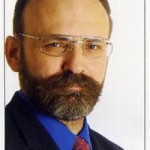
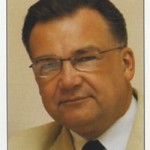
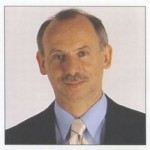
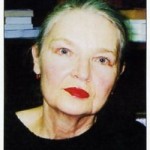
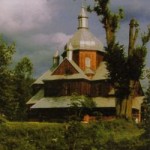
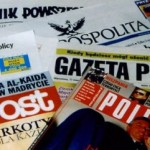
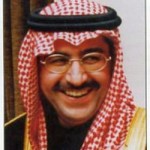
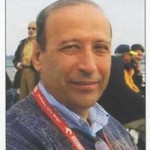
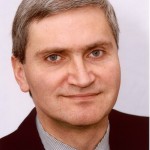


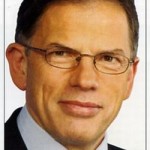
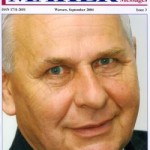
MAZOWSZE GOVERNMENT
Big needs
Our region has practically been in Europe for a long time. The cooperation with European regions started in 1999, just after the administrative reform in the country - says Adam Struzik. więcej...